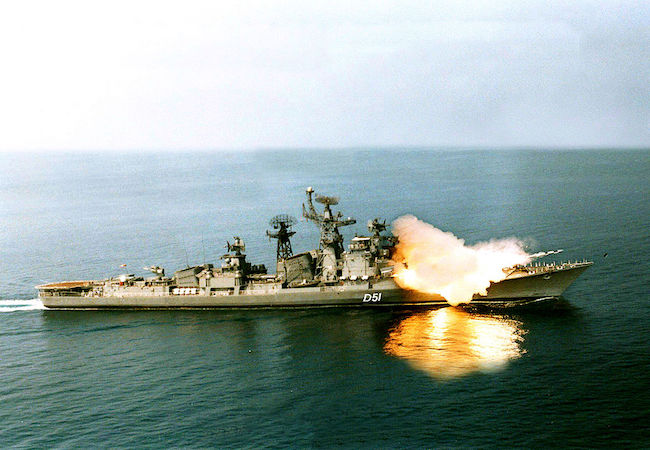
By Syeda Saiqa Bukhari
India’s long-term military modernization plans are driven by its regional and global hegemonic designs. In pursuit of this, India is involved in several military technological advancements and expansions. The development of an advanced and highly effective missile system is one of the key components of its military technological advancement plans. Over the last six months India has carried out various missile tests in the nuclear realm of South Asia. These tests reveal India’s growing military ambitions in South Asia. Its military modernization is also widely regarded as one of the core objectives of Prime Minister Narendra Modi’s more aggressive approach to India’s defence and foreign policy.
Since January 2019, India has test fired a number of missiles including ballistic and cruise missiles. Recently, India conducted a successful test of the Prithvi-II tactical surface to surface short range ballistic missile. In cruise missiles it has also successfully tested the Nirbhay and Brah-Mos missiles earlier this year. The Nirbhay test and the successful air launched version of the Brah Mos reflect the operationalization of New Delhi’s nuclear triad as well as its ambitions of strengthening its BMD capabilities. India also conducted a successful flight test of the indigenously developed Hypersonic Technology Demonstrated Vehicle (HSTDV) on 12 June. This comprises of its long-standing work on developing hypersonic cruise missile technologies.
It is worth noting that India is ambitiously enhancing its missile force as evident in the fact that India tested seven missiles including ballistic and cruise missiles in 2018. During 2019, in just a six month period India tested five missiles including its first ASAT (Anti-Satellite Test). With this progressive attitude, India is enhancing its missile program with the agenda of gaining operational superiority over potential opponent states. Additionally, these missiles also provide a great strike advantage to the Indian armed forces. These enhanced missile development programs are thus a clear indicator of India’s destabilizing behavior towards the existing nuclear equilibrium of the region. It is quite unfortunate that the international community continues to turn a blind eye to these developments at their own peril.
Based on these developments it is also clear that instead of simply gaining regional hegemony, India is aiming to increase its sphere of influence at the international level as well. In this regard, after securing power in the 2019 general elections, PM Modi is seriously taking steps to change India’s foreign policy frombeing more of a balancing state towards making India a power which productively shapes global rules. Therefore, based on these developments it is obvious that India is enhancing its missile program with two objectives. The first is to counter regional rivals such as China and Pakistan. The second is to emerge as a dominating state at the regional as well as global level. To achieve these objectives, India is not only indigenously developing sophisticated technologies but has also signed major defence deals with the US, Russia and Israel.
Moreover, India is already taking advantage of its strategic bilateral partnerships with the US, Russia and France to expand its regional influence. These strategic partnerships would be well served for India’s quest for strategic dominance in sophisticated technology. Moreover, these partnerships are also significant as India needs such partners that are willing to allow it to expand its strategic capabilities and strengthen it as a great power in and beyond South Asia.
Furthermore, it is also quite unfortunate that the great powers are maintaining their lucrative strategic partnerships with India to achieve their own objectives in South and East Asia all at the cost of overlooking India’s missile proliferation record. It is evident that India’s enhanced missile program has continued to weaken existing non-proliferation norms. However, the majority of western countries, especially the US have turned a blind eye to these developments. Instead they continue to argue that New Delhi has maintained a spotless non-proliferation record and that its entrance into the existing non-proliferation regimes could only enhance non-proliferation efforts at the international level. The US and Russia are not considering India’s enhanced missile development program as a threat to non-proliferation rules. They are only focusing on drawing India as a mere tool for their own strategic objectives within this region. In all, India is acquiring sophisticated missile technologies to become a regional hegemonic as well a prominent global power.
India’s regional cum global dominance ambition is marked by its massively developed missile capabilities. Furthermore, India’s quest to dominate the region by developing nuclear armed ballistic and cruise missile is also influencing the strategic calculus of other states in the region. Through enhanced missile development program, New Delhi is dragging South Asia into an impending missile arms race between India and Pakistan, while the US and its allies watch in silent approval. As a result, the future of strategic stability in South Asia under such developments remains under considerable threat both from within and outside the region.
Syeda Saiqa Bukhari is Research Associate at Strategic Vision Institute Islamabad.




